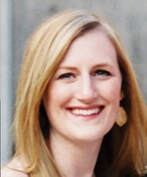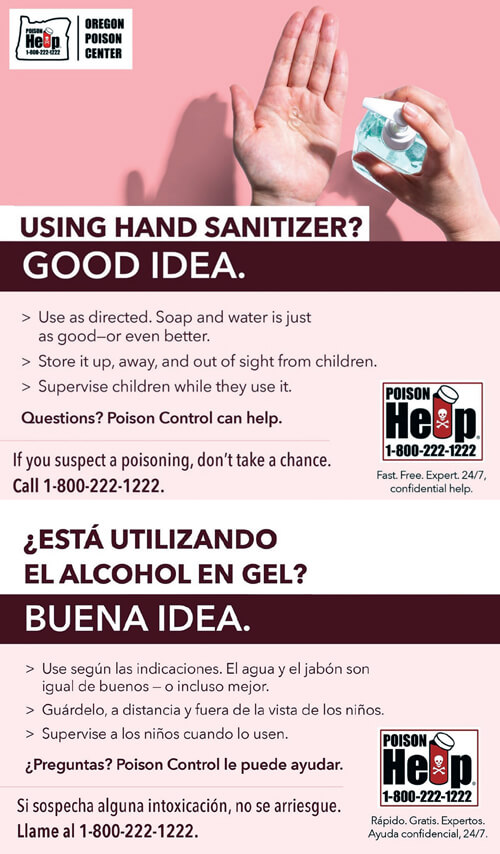Cleaning Product Safety Amid the COVID-19 Pandemic
As Alaskans take measures to stay healthy amid the COVID-19 pandemic, cleaning and disinfecting of surfaces is an important part of preventing the spread of disease. The Centers for Disease Control and Prevention recommends routine cleaning of frequently touched surfaces such as doorknobs, light switches and toilets with household cleaners and EPA-registered disinfectants appropriate for the surface. When used properly, these products can be effective against the spread of diseases such as COVID-19. When used incorrectly, these products may be harmful to the user and others in the household, especially children. Protect your family from a poisoning by following these recommendations from the Oregon Poison Center at Oregon Health & Science University, the regional poison center for Alaska.
Read the product label Prior to each use, read the product’s label. The label provides important safety information and ‘directions for use.’ This is important to understand as disinfectants are only effective when used exactly as described. Excessive use above and beyond the product’s ‘directions for use’ may put the user and other members of the household at risk of unwanted health effects, including a poisoning. Additionally, household cleaners and disinfectants should only be used on nonhuman surfaces as described on the product label. They are not designed for use on food or to disinfect the air or walls. Ingestion or injection of such products may be life-threatening and is NOT recommended for the treatment of COVID-19 or any other viruses. Cleaning products and children don’t mix Exposure to household cleaners is the second most common reason for calls to the poison center for children younger than 6. Children are at greater risk for poisoning because of their developmental state and physical size. In exploring their environment and observing adult behavior, young children may attempt to interact with items within their reach. Additionally, household cleaners can easily be mistaken for similarly colored juice or sports drinks. The packaging of these liquids often looks similar and children who are not yet reading will not know the difference. To reduce the risk of exposure, household cleaning products should be stored separately from food and drinks, and always kept in their original container to reduce confusion. Store these products up high and out of reach of children after each use. A basic cabinet lock or child safety lock on the cabinet where the products are stored can provide an extra measure of protection. Children should not handle household cleaning products and disinfectants. Consider giving them other tasks to help tidy up, such as putting away toys or folding clothes. Poison prevention With additional cleaning and disinfection amid the COVID-19 pandemic, household cleaning products and disinfectants may be more prevalent in the home. To reduce the risk of poisoning: - Read the product’s label and follow the ‘directions for use’ every time. - Keep products in their original containers in order to properly identify them for users and in case of emergency. If there is an exposure the poison center needs to know what the product is. - Never pour cleaning products in beverage cups or water bottles. It is easy to mistake liquid cleaners for a beverage when placed in a cup and left out. - Household cleaning products should never be mixed together. Certain combinations of products such as bleach mixed with ammonia can create toxic gas and result in severe illness. - Ensure proper ventilation when using household cleaners and disinfectants. Open a window, door and run a fan blowing air away from the area being cleaned. - Teach children from a young age not to touch, taste or smell household cleaning products or anything they have not been given by a trusted adult. If you or a loved one is experiencing a poison emergency call the poison helpline at 1-800-222-1222. A trained health care provider is available 24 hours a day, 7 days a week. The call is free and confidential. Poison prevention education and other poison safety resources are available at oregonpoison.org. Accredited by the American Association of Poison Control Centers, the Oregon Poison Center is a designated regional poison control center for Oregon, Alaska and Guam.
|


